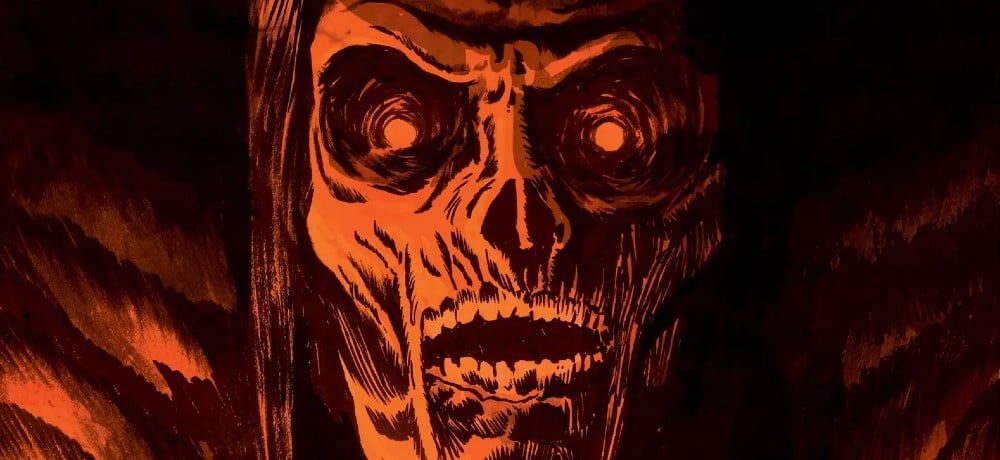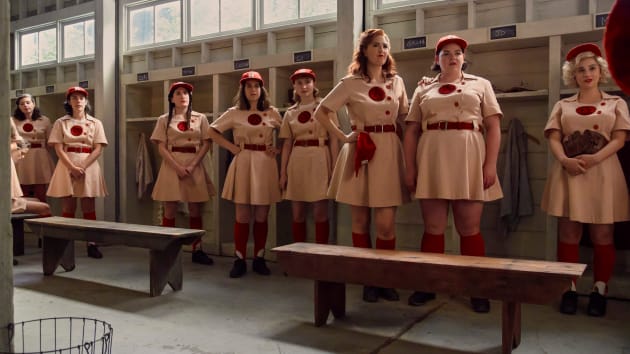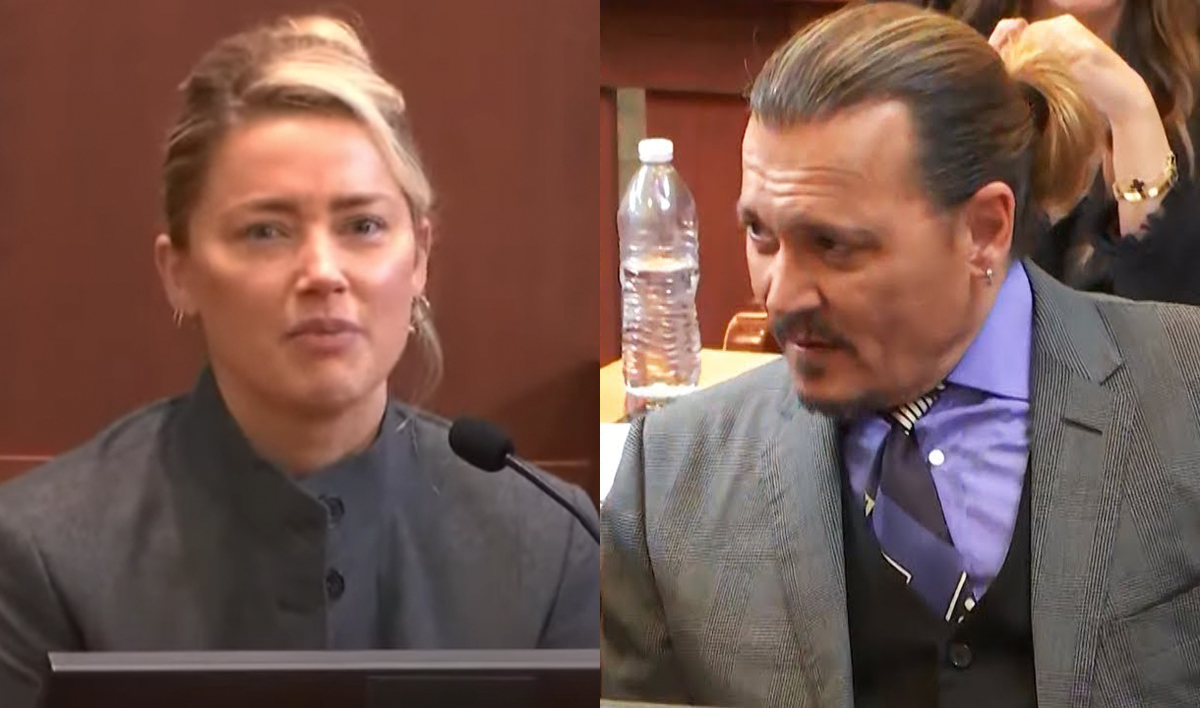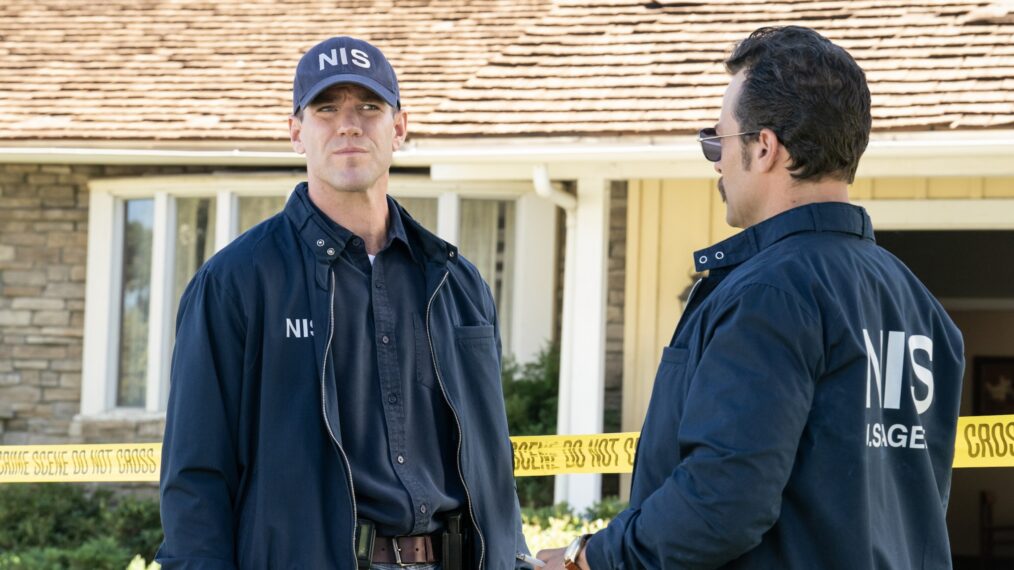
While I advocate for nontraditional rom-coms with a bloodthirsty bite, Your Monster struggles to tame mismatching tones. It’s a hairy concept — what happens if your childhood boogeyman has a crush on you? Filmmaker Caroline Lindy approaches “Beauty and the Beast” meet-cutes from a horror protagonist’s perspective, but bubbly cuteness detrimentally outweighs the script’s darker leanings. Date night sweetness and flesh-torn grotesqueries don’t play nice together, which is a downer as the film fails to unify its hybridized approach. The best genre romances find harmony between warmed hearts and spilled guts, while examples like Your Monster fail to earn monstrous moments.
Melissa Barrera is a dream romantic lead as Laura Franco, an actress recovering from a cancer-related surgery. Laura’s depressed, having been dumped by her playwright ex-boyfriend Jacob (Edmund Donovan) while still hooked to hospital machines. She holes away in her childhood New York City apartment, wallowing by her lonesome. Here, Laura encounters the monster in her closet (played by Tommy Dewey), who’s matured into an isolated loner. Together, Laura and “Monster” grow from contentious roommates into a beneficial partnership as they learn they’re not so different despite one being human, and the other being a literal nightmare.
Classifying Your Monster as a “romantic horror comedy” sets the film up for failure. Bastions of the subgenre like Spring or Nina Forever don’t forget to bring the “horror,” where Lindy’s approach is lopsided. From Monster’s dressed-down Teen Wolf appearance to an emphasis on Halloween Hallmark presentations, there’s never a thrust into truly macabre material until it’s too late. Your Monster is about Laura’s journey and the desperation of heartbroken people, where Monster exists for her benefit — to influence her confidence. It’s initially a laughable scenario, but the odd-couple living situation grows tiresome with no real genre stakes.
Barrera lights up the screen as a stage actress coping with the male ego’s fragility. She and Dewey boast organic chemistry in their most lovestruck interactions, whether reciting monologues like theater dorks or hyping Laura to prove the doubters in her life as fools. For an outlandish conceit, Barrera keys into Laura’s vulnerable sadness both comically (stuffing her face with baked goods) and messily (chasing comfort over self-appreciation). She’s a victim of Jacob’s toxically masculine facade, the “supportive” type who quotes Malala Yousafzai and siphons feminine angst from partners for his hopeful off-broadway hit (“House of Good Women”). All the gendered commentary is appropriately on the nose, but Barrera owns the room dressed as Frankenstein’s bride or remains charismatic, skittishly flirting with Dewey’s not-so-scary mongrel.
That’s also the problem with Your Monster. Edmund Donovan’s historically handsome bastard and Dewey’s mangey curmudgeon under Laura’s mattress visually sell an obvious point — it’s what’s inside matters. But Dewey’s cosmetic makeup applications and everyday attire scale any frightening elements back, since we have to believe Barrera would show her longtime bedroom lurker affection. Lindy pads Laura’s fantasy realm in a way that never establishes Your Monster as ferocious until the third act, which feels counterintuitive, unearned, and reckless. Laura’s journey to reclamation through Monster and where Jacob’s play takes her culminates in a bloody but confusing way, lacking establishment and, therefore, payoff.
Your Monsters aims to be endearingly corny and a bit hokey, which Dewey sells as this Brooklyn-ish, see-him-at-a-street-fair take on a werewolf. Comedic value stems from Monster’s unorthodox human traits, from wardrobe to a regular dude’s voice. Lindy invests her focus on Laura and Monster’s relationship to the point where she forgets to uphold the “horror” part of her film’s bargain. She borrows from fabled childhood tales where creatures lurk in shadows or peer between popped-open doorways but never dares commit. Dewey’s presentation as Monster feels less transformative and more like cosplay, as if Monster’s fulfilling some Grimm kink for Laura. The mood is ruined, wasting otherwise tender bondage between two wounded souls.
Lindy’s feature debut has enchanted upsides but doesn’t piece its contrasting subgenres together. Barrera cannot save Your Monster from itself, as sitcom silliness overrides any savage romantics or dating pool vengeance. Storytelling never unleashes its wild side, which becomes a stranger and more distracting reality as scenes pass. I appreciate Barrera’s flexibility and adaptability as Laura, taking to the freakish nature of Your Monster, but even her performance gets lost in the film’s one-note execution. Alas, another hybrid genre challenge proves too difficult to overcome.
Movie Score: 2.5/5




















:quality(85):upscale()/2024/10/30/828/n/1922564/e2d0d69d6722808f5b9364.97600434_.jpg)






